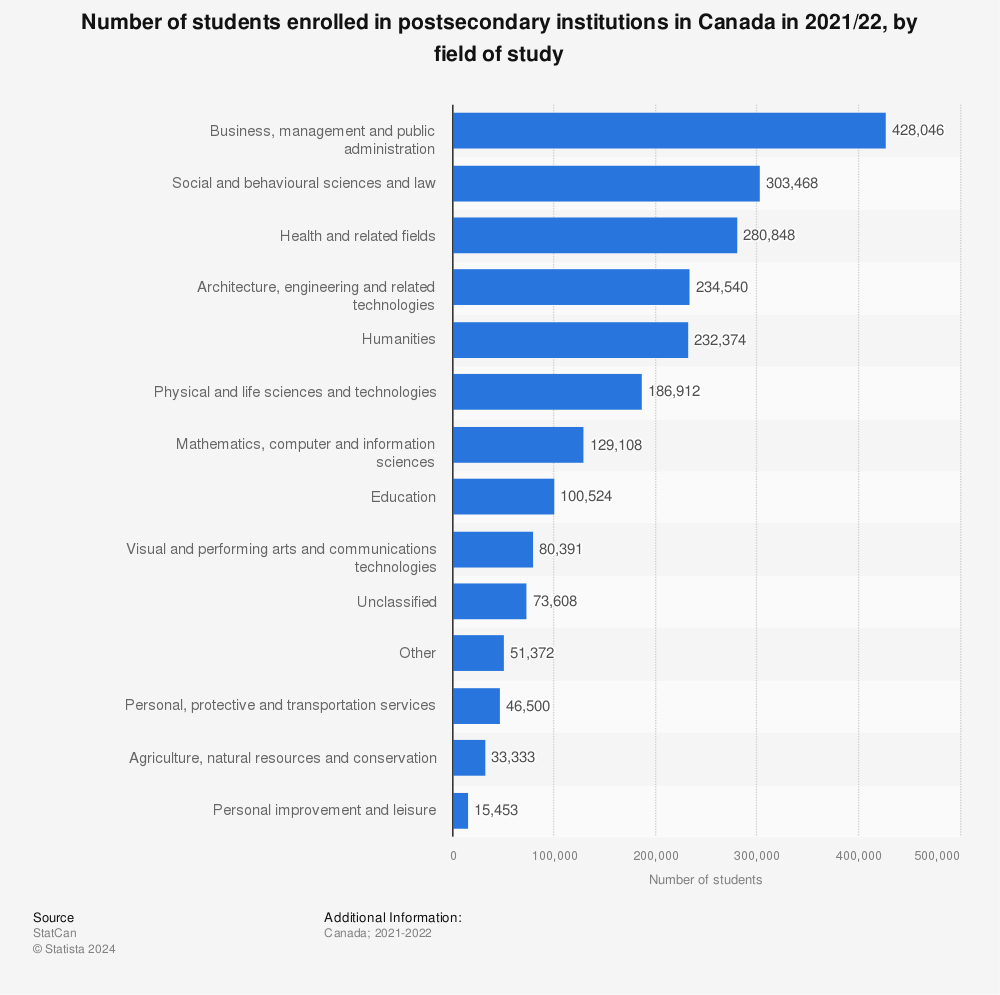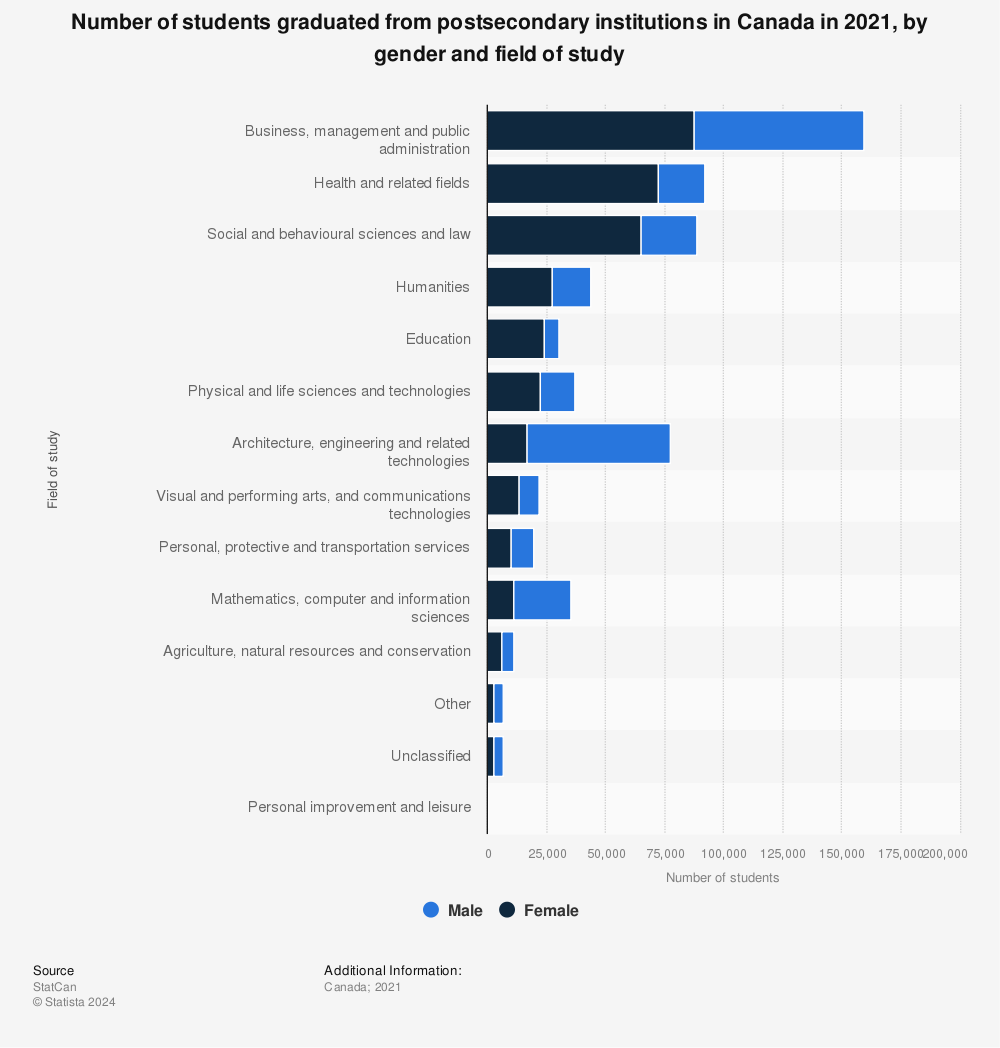Canada is one of the most immigrant-friendly countries and has a great university culture. It has consistently been among the most popular study-abroad destinations for Indians for the past three decades.
So, the number of international students in Canada is increasing, and a big part of that number is Indian.
However, before adding yourself to that number, you must take a few exams to study in Canada.
This guide will break down the exams that you need to take to study in Canada. From language tests and undergraduate exams, to graduate exams and subject-specific tests, we cover it all.
So without any further ado, let us get right into it.
What exams are required to study in Canada?
We will break this section down into four parts–English language proficiency exams, undergraduate exams, graduate exams, and subject-specific exams to study in Canada.
-
English Language Proficiency Exams
When planning to study in Canada, understanding the English exams to study in Canada is the first step. Universities in Canada do not consider India to be an English-speaking country, which means students need to score well in a language exam to prove their suitability for higher-education in an English-speaking nation.
That is why English exams to study in Canada are a mandatory requirement for Indian students. Now, broadly speaking, you have four choices in this department. They are as follows.
-
IELTS
IELTS stands for International English Language Testing System, and is the definitive English exam. It is accepted in more than 140 countries around the world for study, work, and immigration purposes.
The IELTS exam will score you out of nine bands with a score of 6.5 and above making you eligible for most Canadian universities. You would need a good IELTS score to study in Canada as it is an English-speaking country.
However, you need to be aware that universities have a minimum per-section score as well. For example, the University of Toronto accepts an IELTS score of 6.5, but no individual section should be below 6.0.
The same holds true for the University of British Columbia. UWaterloo, a popular engineering destination, asks for a minimum of 7.0 in the IELTS exam. Each university tends to have its own requirements, so do your due diligence.
-
<TOEFL
The word TOEFL is short for Test Of English as a Foreign Language. It is widely accepted around the world. TOEFL is an alternative to IELTS for those trying to meet the study in Canada IELTS requirements.
For the TOEFL, the highest score is 120. As a reference, UoT asks for a score of 89 with UBC and UWaterloo asking for 90 and above.
-
PTE Academic
The Pearson Test of English Academic test is also widely accepted at Canadian universities albeit not as much as IELTS or TOEFL. For students exploring options to study a master’s in Canada without IELTS, PTE offers a viable alternative.
It’s essential to check with your target university and confirm if they accept PTE scores, because not all of them do.
The PTE Academic is scored from 10-90, and a score of 65 will make you a competitive applicant. The Universities of Toronto and the University of British Columbia ask for a score of 65, and Waterloo asks for a minimum score of 63.
-
DET
The last exam on this list is the Duolingo English Test (DET), which is also the newest addition. It is the most affordable option, at $59, versus the other three English exams to study in Canada that cost $200+ each.
However, the main caveat is that the DET is not accepted everywhere, so make sure you write to your target institute to ask, or check on their official website whether they accept the DET.
Even within universities, certain academic departments may not accept the DET. The Universities of Toronto and Waterloo ask for a score of 120 and above, and UBC for 125. The DET scores you from 10 to 160.
The University of British Columbia (UBC) has published an English test requirement by program table. It should give you a good idea of what English exam score to target, depending on the program you’re applying to.
For all the English exams to study in Canada, your scores are valid for two years from the date you take the test.
Beyond that, Canadian universities will not accept older scores, so plan your exam dates accordingly. Next up, we have the undergraduate exams to study in Canada.
Undergraduate Admission Exams
If you are looking to study in Canada after 10th and 12th, then you will need to take either the SAT or the ACT.
You might also want to take a few AP exams to give weight to your application. Let us learn more about each of these.
-
SAT
SAT is short for Scholastic Aptitude Test. The SAT tests your math, reading, and writing skills. It’s a common requirement for undergraduate admissions.
Canadian universities accept SAT scores for undergraduate programs. The SAT focuses more on evidence-based reading and writing, and includes math sections.
The SAT score ranges from 400 to 1600, with a score of 1450 making you a very competitive applicant. Higher scores may also make you eligible for scholarships and fee bursaries.
-
ACT
ACT stands for American College Testing. Despite its name, however, the ACT is accepted worldwide. It is a standardized test that gauges high school students’ readiness for college.
It covers English, math, reading, and science, with an optional essay section. Like the SAT, it’s primarily used in the US but is recognized in Canada.
Giving either the SAT or ACT is optional but recommended for Indian students. It’s a good choice if you’re comfortable with scientific reasoning and prefer straightforward questions.
With a maximum score of 36, a score of 30 or higher would make you competitive. For reference, UoT asks for 32-35 on the ACT.
-
AP Exams
AP stands for Advanced Placements, and is offered by the same body that made the SAT. These exams cover specific subjects like history, calculus, or biology.
You could earn college credit or skip introductory courses if you score well on an AP exam.
For instance, the University of Toronto allows up to 3 credit hours to be given against AP exams, provided you score more than 4 out of 5 on each exam score.

Submitting one out of the SAT and ACT is encouraged for Indian undergraduate students in Canada.
AP exams are optional, but they are the norm. Indian students typically take 3-5 AP exams if they are looking to study in Canada, the US, the UK, Australia, or New Zealand.
And with the undergraduate exams to study in Canada out of the way, let us look at the exams you’ll need for Canadian master’s programs.
Graduate Admission Exams
If you finished your bachelor’s and are looking to meet the government’s study in Canada requirements, you’ll need to take either the GMAT or GRE. These are two exams, each with a focus on quantitative questions.
They are especially important for those looking to study business, science, engineering, or finance. Let us learn a bit more about each of these graduate exams to study in Canada.
-
GMAT
Designed for business students, the GMAT tests analytical writing, reasoning, quantitative, and verbal skills. Business schools in Canada, especially those offering MBA programs, often require GMAT scores.
Achieving a high score on the GMAT can significantly boost your application. The GMAT is marked in a range from 200 to 800, and a score of 650+ lends weight to your application.
-
GRE
The GRE is a common requirement for various graduate programs, not just those in business. It tests your verbal reasoning, quantitative reasoning, and analytical writing skills. Think of it as the graduate-level version of the SAT or ACT, but harder and more respected.
It’s not specific to any discipline, making it widely accepted for master’s, MBA, and doctoral programs in Canada. The highest GRE score is 340, but anything above 300 is competitive for top Canadian universities for master’s programs.
Choose between the GRE vs. GMAT by looking at two factors. These are as follows.
- Your Intended Program: Business schools almost always require the GMAT. For other graduate programs, the GRE is more common.
- Your Strengths: The GMAT might be a better fit if you excel in math and business-related concepts. The GRE leans more towards broader verbal and analytical skills.
Now that we have finished the section on graduate exams to study in Canada, let us look at course-specific exams to study in Canada.
-
Subject-Specific Exams
These are the exams that highly intensive courses like law and medicine ask for, to test your aptitude beyond the scope of the GRE and GMAT. The two most commonly asked for are the LSAT and the MCAT.
-
LSAT
The LSAT is a must for law school applicants in Canada. It focuses on reading comprehension, analytical reasoning, and logical reasoning. These sections are designed to test skills crucial for law school success.
Preparing for the LSAT means sharpening your critical thinking and argumentation skills. Many resources are available to help you practise, including official prep books and online courses.
Doing well on the LSAT can significantly boost your law school application.
-
MCAT
Aspiring medical students in Canada need to take the MCAT. It tests your knowledge of scientific concepts, critical thinking, and problem-solving skills. The MCAT covers topics in biology, chemistry, physics, and psychological and biological behaviour.
And with that, we come to the end of the section on exams to study in Canada and study in Canada requirements. Next, let us look at the top courses and universities to study in Canada.
Top courses and Universities to study in Canada
Canada is popular for most major fields of study, and it is understandable why.
Amazing universities, a vibrant international student community, and a clear path to residency all work together to make Canada a popular destination for study.
Here are the most popular courses that people study in Canada.
-
Engineering
This includes in-demand fields like Civil Engineering, Mechanical Engineering, and Electrical Engineering. These courses in Canada combine theory with hands-on experience to equip students for a successful career in the world market.
-
Computer Engineering and IT
In today’s digital world, degrees such as Computer Science, Software Engineering, and Information Technology are highly sought after. These programs give students the essential skills to excel and create in the ever-changing tech field.
-
Business and Management
Courses such as Bachelor of Commerce, MBA, and Masters in Finance cater to those interested in entering the corporate world. Canadian business schools excel at growing leadership.
They also excel at developing critical thinking and managerial skills.
These skills are essential for business success. Whether pursuing a Commerce degree or specialised MBAs, Canadian schools are recognized for their value. Their programs emphasise global business, entrepreneurship, and other vital areas.
-
Finance
Specialisations like Financial Engineering, Financial Management, and Accounting are popular. These courses offer deep insights into finance. They teach students about investment, market analysis, and financial decision-making. Canada is home to two “target” schools for IB or “Investment Banking”, UoT and UCalgary.
-
Arts and Humanities
This broad category includes degrees in Psychology, Literature, and History. They encourage students to explore human culture, thought, and creativity. These courses develop critical thinking, communication, and analytical skills.
You can take a look at the graph underneath to see the most popular courses in Canada.

Here is a graph that shows the number of students who graduated from Canadian master’s programs, sorted by gender.

And now with the courses done, let us look at the most popular universities in Canada for master’s and undergraduate programs.
-
University of Toronto (UoT)
Ranked among the top universities globally, UoT offers a diverse array of programs. It’s known for its research opportunities and high placement rate post-degree. UoT offers a vast range of programs and attracts a large international student body. Official University Page

-
University of British Columbia (UBC)
Another top-ranked university with campuses in Vancouver and Kelowna, UBC is known for its excellence and beautiful campuses. With a strong emphasis on research and innovation, UBC is a leading choice for students worldwide. It boasts a vibrant community of over 30,000 international students. Official University Page

-
University of Waterloo (UWaterloo)
UWaterloo is known for its cooperative education programs. They offer students work experience alongside their studies. It’s especially well-regarded in engineering and IT. Official University Page

-
University of Calgary (UCalgary)
A leading research university with strengths in energy, engineering, and health sciences , UCalgary is known for its friendly campus and great teaching. It offers many programs in different fields, but is known for computer science and engineering. Official University Page

-
University of Alberta (UAlberta)
UAlberta is celebrated for its commitment to top-notch teaching and research. It offers full programs in arts, sciences, and engineering. The admission and entry requirements to UAlberta tend to be more relaxed than the other four universities on this list. Official University Page

And if narrowing down on a university choice seems daunting, SelectRight is here to assist.
Our free AI-powered platform matches you with the best programs based on your profile, preferences, and goals.
Whether you’re sure about your field of study or still exploring options, SelectRight will help find the best university for you.
Next, let us look at a few pros of looking at universities in Canada for master’s and bachelor’s degrees.
Why Choose Canada as a country for your higher studies?
Canada consistently ranks as a top destination for international students. Here’s why.
- Canadian universities are known for their academic standards and offer globally recognized degrees.
- Canada embraces diversity and multiculturalism. You’ll feel at home and supported as an international student. Students from all over the world feel welcome here, making it a vibrant place to learn and grow.
- Many programs include internships or co-op options, letting you gain valuable work experience while you study. While studying, students have the opportunity to work part-time.
This helps them gain real-world experience and manage their living expenses. Because Canadian law has a minimum wage for international students, students can earn a respectable income.
- After graduation, Canada offers pathways for international students to gain permanent residency (PR) and build a life there.
- Canada boasts safe cities, beautiful nature, and a vibrant cultural scene, ensuring a well-rounded student experience.
And these were the top five reasons why you’d want to look at Canadian universities for master’s and undergraduate programs.

Next up, a quick word on how you could apply for PR in Canada after studying there.
How To Get PR in Canada after studying there?
Many international students choose to get permanent residency (PR) in Canada after their studies. Here’s how to go about it.
- Complete Your Studies. Successfully finish your degree or diploma from a Canadian institution. It’s your stepping stone toward gaining eligibility for PR.
- Gain Work Experience. Canada values in-country work experience. Consider the Post-Graduation Work Permit Program (PGWPP) that allows students who have completed their studies to work in Canada. This experience counts significantly when applying for PR.
- Choose the Right Immigration Program. Canada has several immigration programs, including the Canadian Experience Class, the Federal Skilled Worker Program, and the Provincial Nominee Program. Each has its criteria, so find the one that best fits your situation.
- Submit Your Application. Once you’ve chosen an immigration program, prepare and submit your application. Ensure you meet all the requirements and provide all necessary documentation.
- Improve Your Language Skills. Language proficiency in English or French is crucial for gaining PR. Higher scores can improve your immigration points.
- Get Your Credentials Assessed. If your occupation requires it, you might need to have your educational credentials assessed.
Remember, the process can vary based on individual circumstances and the specific requirements of the immigration program you’re applying for. Starting early by understanding the requirements and how you can meet them during your study period in Canada is wise.
And with that, we come to the end of this article on exams to study in Canada and study in Canada requirements. We hope you found it useful, and we’ll see you in the next one.
FAQs
Do Canadian universities offer on-campus housing?
Yes, many do, especially for first-year students. Start the application process early as spots can fill up.
Can we study in Canada without IELTS?
Yes, you can study in Canada without IELTS. However, for an undergraduate degree, it’s unlikely. You can forgo the IELTS, but you will have to take another one of the English proficiency exams. If you studied the IGCSE or IB in high school and got a high mark in English, then you can apply for a waiver. And if your undergraduate degree was in English, you will also be eligible to forgo the English exam requirements.
Can I study in Canada from Bangladesh without IELTS?
Yes, there are many alternatives available for you to study in Canada without an IELTS score. You could look at giving any of the other exams on this list, or asking your target university for an exemption.
Can I study a master’s in Canada without IELTS?
Yes, this is very possible. If your undergraduate degree (4 years) has been taught in English, then you are eligible for an English exam exemption from most universities. However, if your degree was 3 years, then you will need a certificate from your grade 12 school that stated you were taught in English. If you get that, then you will, again, be eligible for an English test waiver for your master’s. With the waiver, you will be able to study a master’s in Canada without IELTS.
What is a good PTE score to study in Canada?
Most Canadian universities will ask for a PTE score of 65 or higher. An exception is the University of Waterloo, who ask for a 63 or above PTE score to study in Canada. Also, the PTE has two versions, the PTE general and the PTE academic. Universities only consider the PTE academic as part of their study in Canada requirements, so bear that in mind.
Can I bring my family with me while I study in Canada?
Yes, you can bring dependents, such as a spouse or children, under a study permit. Your spouse might also be eligible for an open work permit.
Can I work while studying in Canada, and does it affect my chances of getting PR?
Yes, international students can work up to 20 hours per week during academic sessions and full-time (45 hours) during scheduled breaks. Gaining Canadian work experience can indeed positively affect your PR application through the Canadian Experience Class.


















